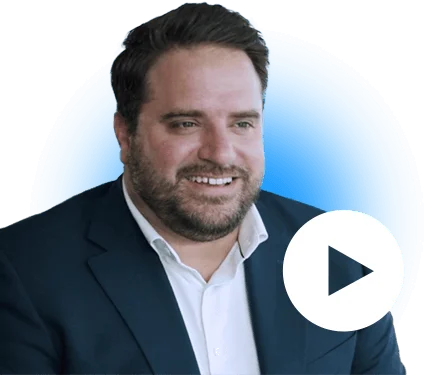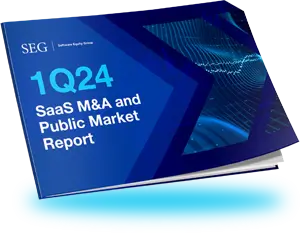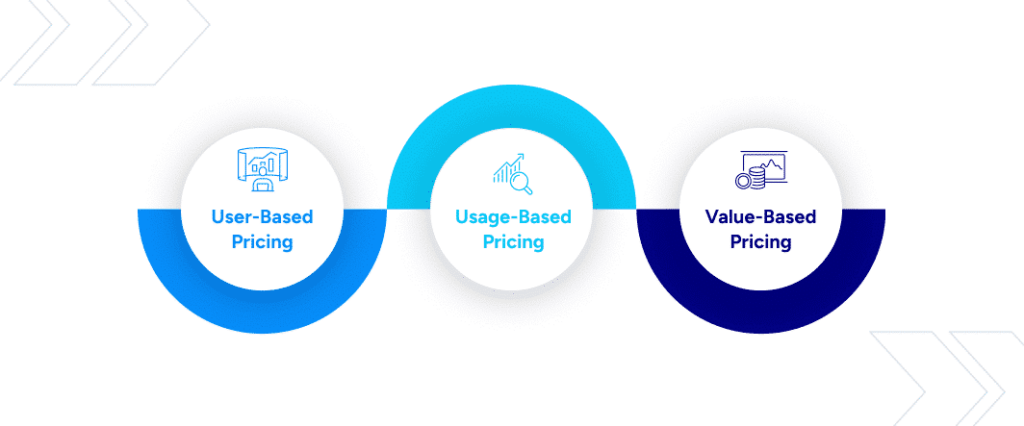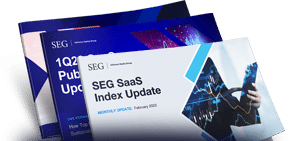SEG Panel – Women in Leadership: Closing Gender Gaps to Drive Business Success
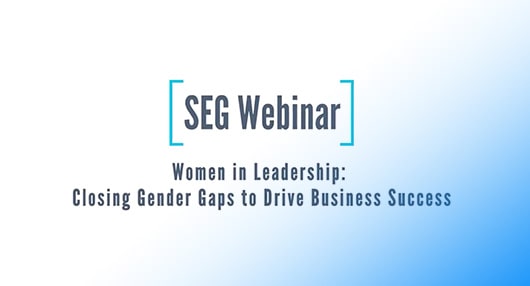
How does a gender-diverse workforce drive stronger and higher performing businesses?
On June 23rd, 2021, Software Equity Group (SEG) hosted a panel discussion with four incredible leaders, including CEOs and senior-level executives from Intuit, IBM, T-Mobile, Sage North America, Grace Hill, and software-focused private equity firm ParkerGale.
They discussed how a gender-diverse workforce directly improves business performance.
Panelists Included:
- Sue Swenson: Telecom Industry Expert; Former CEO, Sage North America; Former COO, T-Mobile
- Kristina Heinze: Co-Founder & Partner, ParkerGale
- Dima Ghawi: Executive Coach, Keynote Speaker & Author
- Dru Armstrong: Executive Advisor & Former CEO, Grace Hill
These experts shared their perspective on:
- How gender equality powers success for companies
- Methods to attract and hire diverse candidates
- Strategies to promote gender equality in the workplace
- Ways to foster inclusion within your industry
- How to implement change to create inclusive cultures
Below we summarize some of the key questions and answers from our panel:
Q: Talk about some positives in your career that you can attribute to your gender/diversity? From your perspective, how does fostering an inclusive and diverse work environment benefit your company’s success?
Dru: One of the amazing things about transitioning out of Grace Hill was that my number two, Kendall Pretzer, succeeded me as CEO. As women, we are often told early in our careers that we do not work well with other women. I think that was because we are all competing for the same spots. One of the things that I found in the partnership with Kendall was that she brought a different perspective to leadership. She was a homegrown operator, founder, entrepreneur, and deep in the industry that we serve. I felt like part of me becoming a good CEO was learning so much from this other woman that I had the opportunity to work with, then ultimately passing the torch. Under our combined leadership, we evolved from being a company that happened to be diverse and more than 50% female into a purposefully diverse company in terms of its culture, mindset, and business practices. I have personally benefited so much from working on diverse teams and partnering with women in my career.
Sue: From my experience, what I did not realize was the impact we, as women in leadership positions, have on other women in the organization. In every situation where I was a CEO or in a senior leadership position, it was interesting to see the impact that you have as an individual and how it inspires others to take more risks or take on additional assignments. The number of people who came up to me and said, “You cannot believe what a difference it makes to have you in that leadership position.” I try to have diverse teams, and I think that role-modeling is important, not just for women in the organization but also for men to see its impact. I think we have more impact in those positions more often than we realize.
Kristina: We are just under 40% female at ParkerGale, which I am very proud of, and that is no accident. We want the best of the best; all of us do. To be able to pull that talent from everyone, you have to make them feel comfortable. It is not common in private equity, but we have maternity and paternity leave to promote this diversity so that if you want to have a family and have a career, you can do both. That benefits all of us. From a personal standpoint, there are positive standpoints from my career that I can attribute to being female. In my role, it is so important to source new acquisition opportunities. The Founders and CEOs we reach out to are receiving calls from dozens of private equity and venture capital firms. It is funny because being a woman might help make contact and have the phone call returned. Using this as a benefit is something I feel is important in my career. Supporting women is so important within ParkerGale. When we find those rockstars, we aim to make them feel more comfortable to keep them around and ultimately help ParkerGale be more successful.
Dima: In my situation, the positives in my career are that the organizations I worked for before I started my business focused on diversity and inclusion, but the biggest part is that they did not stand in my way. When people think of diversity, they automatically assume that they must promote diverse but not as qualified talent, which is a horrible bias. For me, it was the opposite. It is not that I was given advantages because of my ethnicity and gender, but rather I did not have people stand in my way and use that as a negative to stop me from advancing. So, my work ethic and contribution allowed me to continue and advance.
Q: In a recent study of private equity firms, researchers discovered that teams with at least one woman produced an average 12% higher IRR than all-male teams. A separate study by McKinsey found gender-diverse boards and executives teams were over 25% more likely to outperform on profitability. In your opinion, how does the dynamic of having diverse teams produce these results? What skills unique to women bolster this?
Kristina: Other studies find that failure, or the loss of capital so defined as less than one times your money back for private equity, is also reduced with teams that have at least one woman on them. My life experiences are different from my partners. If everyone looks the same and has experienced life the same, you will not make the most efficient decisions. It boils down to having a voice with a different perspective, which leads to making better decisions and, in turn, leads to all this data on higher IRRs, higher profitability, etc.
Kristina: For women specifically, what skills do we have? Many studies show that women are a little more socially sensitive and pick up on social cues better. In a group setting, when discussing decisions about investments and analyzing company performance, women may be more apt to talk about varying opinions instead of having a confrontation. We do bring it up. That discussion may be uncomfortable, but it leads to putting biases aside and making more efficient decisions from a debate standpoint.
Q: If you reflect on your career, can you recall any ‘setbacks’ you may have faced related to gender/diversity? How did you learn from them, and what helped you move forward?
Dru: There are different types of setbacks we all face in our careers. The ones that are the most painful are where you internalize the fact that it is harder for you as a woman. There have been moments in my career where I recognize the board is harder on me because I am a woman, or I am up against something greater because I am a woman. We have to compartmentalize our feelings around that to push forward and continue to lead. Success and performance are what save you ultimately. Selling a company is incredibly challenging. Layer on that only 5-7% of CEOs are women, and you know there is an extra layer of pressure. The more you can bring it back to the performance and what you are able to do in the business is the saving grace. Part of why I am attracted to private equity-backed businesses is because you have clear financial goals and metrics to achieve. When you do, it is hard for people to challenge whether you are the right leader.
Dima: I do not want to say there have not been any personal or professional setbacks because there are. I choose not to let them stop me. I am persistent, and I have a vision for my life, and I am not going to let any of these setbacks stop me. I am a Middle Eastern woman who grew up in a small conservative community with many expectations of me as a woman. My story was pre-planned on my behalf of how I was supposed to grow up. I was supposed to finish high school, go to college until I get married and have kids. So this setback caused me to have very low confidence, which made me think that I am not a leader, that I do not have any abilities, and that I am not good enough. Coming into the workplace with that mentality, can you imagine how I will speak up in meetings if I was programmed to believe that I am not good enough? How will I lead a team if I am programmed to believe that I am a follower and not a leader? So that was a major setback to deal with, but I had to continue to focus on changing my story and changing my belief system.
Dima: Many women deal with the fear of making mistakes, worry of being judged, and aspire for perfection because of the expectations set on us early on in our lives. It is not just the setbacks from the workplace and the challenges we have working in male-dominated environment. It is coming with our own limitations, fears, and insecurities that most of the time stand in our way and stop us from advancing.
Q: How have you seen industries change over your career as it relates to diversity and inclusion? What areas of inclusion and diversity have you seen improve throughout your career, and what are some areas that still have the most work to do?
Sue: There is more awareness of the issue now, and I think that has made a ton of progress and focus. Yet, we have not made the progress we would all like to see. I looked at some of the data this morning from the Women in Tech report since I come from the technology space. They asked a question about gender equity, and the responses were that women felt it was 28% better, 58% the same, and 14% worse. Men answering the same question said 41% better, 54% the same, and 5% worse. They asked executives, and they said 24% better and 22% worse. Everybody’s perspective impacts this. I am not in the active workspace today, but I serve on several boards, and I was involved in that effort that started several years ago called 2020 Women on Boards. I am pleased to say we have achieved the result of 28.8% of U.S. boards are women today. I think that shows real progress, but it took a lot of effort and focus.
Sue: Two organizations are really helpful to women. One is theBoardlist, which helps women find other senior executive and board positions. Another is Him for Her brings a network of people together to introduce people to up-and-coming women eligible for board positions. They say, “the problem isn’t the pipeline; it is the network.” This organization brings a lot of people together. The focus is great, but there is a lot more progress to be made.
Q: Women deal with a unique set of challenges that men do not. Giving and giving mentorship for emerging women leaders is one of these unique challenges. Can you describe the different styles of mentorship you have received and given over the years?
Kristina: I did not have a female mentor because it did not exist when I was moving up the ranks. I did have a male mentor, and it does not matter if they are male or female. As long as you have a mentor, that will make a world of difference. With giving mentorship, I try to get involved with mentorship programs as much as I can. If people reach out to me, I make it a point to respond. It is important to set up the time with them since they took the initiative and went outside of their comfort zone to reach out and ask for that kind of help. Mentoring is the best job in the world, and I cannot imagine doing something else.
Kristina: Because there were not many mentors available at the time, we went out on our own and created a community ourselves. For example, five partners at private equity firms in Chicago have become such good friends of mine. Not only do we collaborate, we see the same issues and try to do what we can to help each other. We have to do what we can on our own and take that initiative, in addition to seeing if you can become part of mentorship programs.
Sue: Like Kristina, I did not have a mentor. The mentorship I received was to give me more challenging jobs if I survived the last one. I learned that they were looking out for me, but it was not a formal connection. What I have done is that I offer mentorship to anyone, but I ask them to pay it forward. They will be in leadership positions in the future, and I ask them to mentor someone else when they have the opportunity. It’s important to understand that everyone is different and has different styles. As a leader, learning these styles is critical to creating a comfortable environment where everyone feels they can participate.
Q: What advice would you give to women entrepreneurs currently pursuing a career in a male-dominated field like Tech/Finance or are looking to move into the c-suite?
Dima: Focus on the vision and not your setbacks. It is easy to look into the setbacks, but you are wasting energy. Make your goal so much more powerful than the setbacks, so the setbacks do not stop you. Focus on the vision.
Dru: What has allowed me to become CEO at a relatively young age is having career sponsors, who will promote you and give you opportunities, and that is earned. Figure out what you are good at, find your gift and passion, and put yourself in an environment where people will sponsor you and give you opportunities. A Harvard Business Review article points out three things that allow people to accelerate into the CEO role young: taking a step back, taking on a big risk, and taking on a messy transformation. So there is a certain element of risk and betting on yourself. Believe in yourself, don’t be afraid to find the right person to give you the right advice and opportunity, and lean on them.
Sue: It is so important to know what you have conviction about. Understand what success is in the environment you are in. Focus on it and make it happen. Then, opportunities will come to you. And never give up, and keep pushing.
Kristina: If you want to get into private equity, be relentless in that pursuit. Know that you will be successful. Do whatever you have to do, find a way. Also, do not be afraid to rely on your network and your friend’s networks to get your foot in the door, especially when you are just starting.
